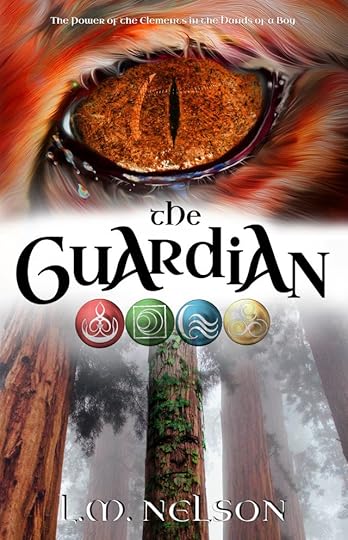L.M. Nelson's Blog, page 22
January 23, 2018
12 Weaknesses to look out for when editing your novel – Guest Post Megg Geri
Here’s more information on editing and revising you might find useful.

So, you’ve written your novel and now you need to start revising your first draft so that you can get it as polished as possible before sending it off to your editor. If you can focus on correcting these 12 weaknesses to look out for when editing your novel you will help to save yourself money as well as really get clear on your own story.
‘The first draft is as bad as the book is ever going to be‘
~ Robin Stevens
Once you’ve finished your first draft you can actually start working on your story. Now you start finding gaps and really get to know your characters. You thought you knew everything about your story already? NO! By revising your manuscript you will get to know your story on a completely different level.
But, how do you craft this vomit on your page into the book…
View original post 1,024 more words
January 22, 2018
Cleaning Up the Mess
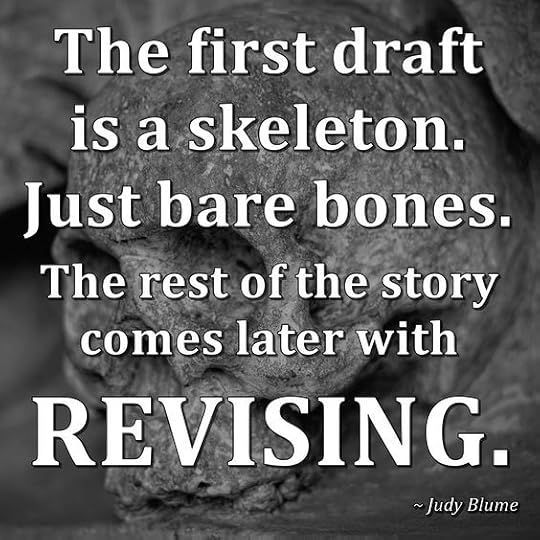 In a previous post, I offered a list of rules to follow to finish your first draft. Now that you have completed your draft, it’s time to clean up the mess.
In a previous post, I offered a list of rules to follow to finish your first draft. Now that you have completed your draft, it’s time to clean up the mess.
As I stated previously, your draft is going to be messy. It’s going to need revisions. You’ll need to smooth out transitions, make grammar corrections, and deepen content. The revising and editing process can be daunting for some, but I’ve learned a few things over the years that have made the whole editing and revising process a little less painful.
Take a break. It’s a good idea to step away from the manuscript for a few days or even weeks before you jump into revising and editing. Work on another project. Take a vacation. Finish the to-do list that’s been hanging on your refrigerator for the last three months. Then, when you’re ready to revise and edit, you’ll see your manuscript with fresh eyes.
Get Organized. Clean off your desk and give yourself a comfortable space to work. Get all research finished before you start revisions, and organize all your notes. Have any grammar or reference books you might need within easy reach.
Clear your calendar. Tell your family and friends you’re busy, clear your calendar, and designate time to get the revisions done. Prepare meals ahead of time and freeze them. Hire a dogsitter. Send the kids to Grandma’s house. Do whatever you have to do to free up time.
Set a goal. Decide on a page count goal and stick to it. Don’t stop until you’re done.
Read and take notes. Read all the way through the entire manuscript once and make notes. Make a list of questions that need to be answered and scenes you need to add. Jot down places where you need to add more details. Decide where chapter breaks need to be. Stay connected to the story.
Take one bite at a time. Once you’ve read through the entire manuscript, break it into 20 or 30 page chunks. Focus only on these pages and look for specific things.
Play nice. Only let your internal editor come out if he/she promises to play nice. It’s ok to be critical of your work, but don’t change things so much that you lose your voice as a writer. Your voice makes you who you are.
Things to look for when revising and editing:
Include the senses in every scene. Include details, but not excessive details. Leave room for the imagination.
Make sure the plot makes sense. Every scene should move the story forward. Kill the fancy sentences that don’t move the plot along. Refer back to your storyboard if necessary.
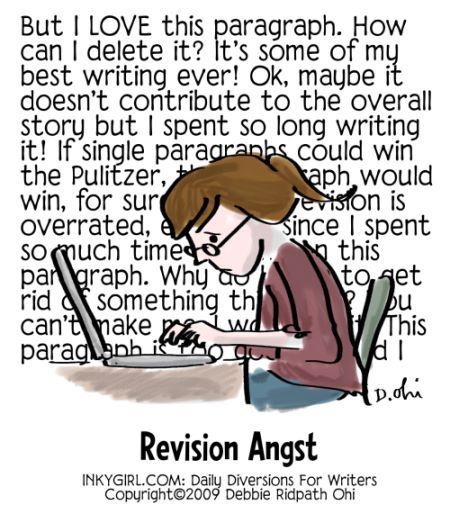
Keep your Point of View consistent throughout.
Create believable tension on every page. Your characters should have goals and motivation, but there should be conflict that keeps them from achieving their goal. Keep their goal just out of reach until the very end. The reader has to want to continue the journey to see what happens.
Prompts and hooks. Hook readers with the opening lines. Leave a chapter with a question. Make the reader want to know what’s going to happen next.
Make your dialogue real. Eliminate small talk. Characters should speak their personality, gender, and age. There is nothing wrong with he said, she said, but use action tags or beats if you can.
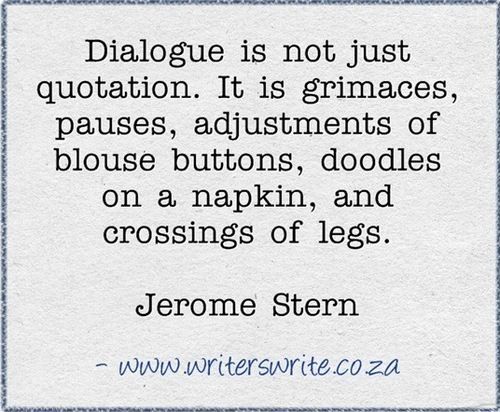
Balance dialogue, introspection, and action.
Look for cliches.
Ditch the backstory. Give the reader the tip of the iceberg by weaving in small bits of information. Let them wonder about the rest.
Reveal character quirks and ticks.
Make sure you don’t have too many story threads. All threads should lead back to the main trail.
Create a balance between long sentences and shorter ones. See the example below.
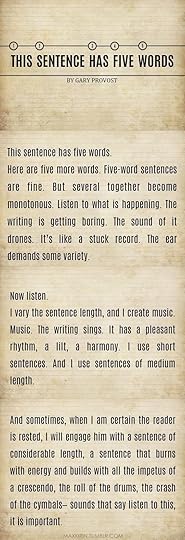
Tighten word choice. Eliminate filler words and use strong action verbs. Check for redundancy. Avoid flowery writing.
Create smooth transitions.
Edit for grammar, spelling, punctuation, and verb tense. Many sources suggest reading through your manuscript backwards to catch grammar and spelling mistakes you might otherwise overlook. And reading out loud allows you to hear errors you might not see through reading.
Once you’ve cleaned up the mess, let the book sit for at least a week before you read through 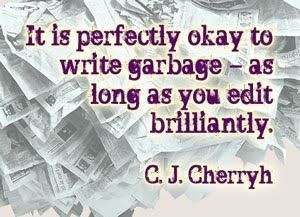
January 21, 2018
Inspiring Quotes Part 14
“Don’t let others tell you what you can’t do. Don’t let the limitations of others limit your vision. If you can remove your self-doubt and believe in yourself, you can achieve what you never thought possible.” –Roy T. Bennett
[image error]
January 20, 2018
Author Spotlight- Lissa Dobbs
Author Spotlight
For the first Author Spotlight, I’d like to introduce you to Fantasy, Horror, Paranormal author, Lissa Dobbs. Lissa Dobbs has always been an avid reader of horror and fantasy. From Dungeons and Dragons to comic books to mythology and folklore, she’s spent most  of her life in worlds of ages past. She’s an avid follower of J. R. R. Tolkien, and H. P. Lovecraft, and she’s still waiting for her Hogwarts letter and her lightsaber. (How long does it take anyway?) If she ever needs rescuing, she hopes Dr. Strange is the one on duty.
of her life in worlds of ages past. She’s an avid follower of J. R. R. Tolkien, and H. P. Lovecraft, and she’s still waiting for her Hogwarts letter and her lightsaber. (How long does it take anyway?) If she ever needs rescuing, she hopes Dr. Strange is the one on duty.
With knowledge of things that ceased to be relevant two hundred years ago, she turned to writing to get some use out of the stuff in her head. Thus, was born the world of Grevared, a world that exists solely in a void space with no celestial bodies. There you will find her heart and soul and see just how many random interests she really has.
Let’s take a look at some of her books.
[image error]Aradia’s Secret
As a child, Gwennyth dreamed of taking a ship across the void and seeing the lands of Grevared. As an adult, she’s content to stay at home and spend her days researching magic. But all this ends when her mother Ravyn transposes forms at nearly 900 years old. Though she has been trained her entire life, Gwennyth is sure she isn’t up to the task of leading her people, and when their magic begins to fail, Gwennyth knows she can’t do it.
But there isn’t anyone else. Her siblings have moved on from Crowrest, and Gwennyth is all that is left. With only her best friend Vonner in tow, Gwennyth sets out into the world of Grevared in search of the goddess Aradia. Her only clue to the goddess’s whereabouts is ‘look not in the places of the gods’. But finding the goddess isn’t her only task. Gwennyth must also find herself.
For more information or to purchase this book, visit Aradia’s Secret on Amazon.com
The Chronicles of Ethan Grimley III
Ethan Grimley III is just like everyone else in Land’s End in the country of Moirena. He attends school at the Arcana Maximus, he helps his mother with her bakery, and he enjoys hanging out with his friends. But Ethan has a secret, one others want to know, and this secret pulls Ethan into a world he never knew existed. From average boy to chosen of the gods in a matter of a few heartbeats, Ethan now has to decide what’s best for himself…and for the world.
There are currently three books in the The Chronicles of Ethan Grimley III series. Check them out on Amazon!



You can connect with Lissa through her website or other social media.
Website: http://www.lissadobbs.com
Facebook: http://www.facebook.com/shadowwalkersofgrevared
Blog: http://shadowwalkersofgrevared.net
Twitter: http://twitter.com/LissaDobbs
Amazon: http://amazon.com/author/lissadobbs
Pinterest: https://www.pinterest.com/lissadobbs/
January 19, 2018
Writing is Like Exercise – A Guest Post By Sarah Foil
[image error]
“Writing is like exercise. Make sure you’re giving yourself the best tools possible so you can continue working and improving.” –Sarah Foil
I first got the idea that I wanted to be novelist when I was in fifth grade. I had a teacher fall in love with a fable-esque short story I wrote and told me I should be a writer. I took that advice as gospel and threw out my idea of being a dolphin trainer (although sometimes I wonder if that would still be better career choice). When fifth grade Sarah Foil looked out on her future, she saw writing in a secluded office all day, reading amazing books, being an international bestseller, going on book tours. In my mind, I was going to graduate with my undergraduate degree in Creative Writing, immediately get a book deal and become a full time writer. Surprisingly, things didn’t work out that way.
To me, at this age and even on to my college years, the thought of an MFA program, spending two more years in school, delaying my writing career and spending more money on tuition, was ridiculous. Many writers and even published authors still share this thought, regardless of experience level or age. Our community has this attitude that writing is an innate talent that you either have or don’t have. It can’t be taught and there’s no value in pouring thousands of dollars a year into reading and writing exercises that you could do on your own. While it’s true that some people will always have a predisposition to art while others have to work much harder, the idea that investing in your future of a writer is wasteful is something we need to stop perpetuating.
Here’s the problem: writing, and art in general, is not a genetic trait, like being able to roll your tongue or being double jointed. Think of writing as a form of exercise instead. If I substitute the word “running” for “writing” when I talk about my career this is how it would translate: When I was in fifth grade I knew I wanted to run as a career. I ran from time to time and watched other people run a lot. In college, I ran track and even bought a gym membership. But I didn’t want to continue to spend time and money on my running career after college. I wanted to go straight to the Olympic running team. That sounds kind of crazy, doesn’t it?
Olympic-level runners have trainers. They have a team of people who watch and critique them. They challenge themselves and set new goals. They don’t graduate college suddenly at the top of their field. They continue to work. Moreover, if you’re not running and pushing yourself every day, you’re not going to get any better. You’re going to come back to that track and find it more daunting and terrifying than ever. Joining an MFA is just like hiring a professional trainer, which was a difficult idea for me to accept even after I was accepted into the program, but I got much more out of it than I could have planned for.
Here are some things you’ll get in an MFA program that would be hard for you to come by outside a program.
Mentorship– In my program I was able to work with professional, published authors one-on-one every semester. I could tell them what was easy for me, what I struggled with and what I was hoping to gain from my experience. This mentorship was essential in improving my writing.
A Community– I joined possibly the best cohort (or class) that I could have asked for. These are people that I worked with through every step of the way. I didn’t read everyone’s manuscripts but we all knew that we were going through the same struggle and were there to support support each other when we needed to.
Regular Critique Groups– This is probably the most valuable thing you can gain from joining an MFA program. You can submit a chunk of writing every round for critique and get feedback from fellow students and mentors. Sure, there are online communities you can join and if you’re lucky there’s local critique groups available to you, but I struggled with these options before my MFA program. In general, I find online critique groups too impersonal and critical. People seem to forget that the point of critique is to encourage people to improve their work, not discourage them from writing all together. In a face-less online environment people find it too easy to brutally honest. The imperson critique groups in my MFA program were the exact opposite: constructive and tough, but also encouraging.
Craft Workshops– You know how it feels in school or college when you have a teacher who just loves what they do? They talk about their work, no matter how mundane it is, and you’re drawn by their enthusiasm. That’s what a craft workshop feels like. You have these professional writers get up and talk about something as simple as the construction of a sentence, but by the end you’re rethinking the way you write.
So, my message is this: consider an MFA program. Don’t be like me and think you’re too good for professional help. My writing has made a complete transformation from three years ago when I finished my graduate degree. I look back on the work I did then and can literally see the difference. My writing is more condensed, my language is more mature, my character are deeper and my plot has more meaning than I could have imagined.
Even worse, don’t think that you’re not good enough for an MFA program. There are hundreds of programs out there. Sure, some are limited to published authors only. Some only accept ten people a year. But for every one of these exclusive, elite programs, there are twenty more that would love to have you in their community. If you’re not already a full time writer, you don’t even have to worry about quitting your day job. You can join a program like mine, the Mountainview MFA, which is Low Residency so you can be part of an in person community but still make money and support your family. A number of new online-only MFA programs are also available, which are a great option for those of us without the means to travel.
If at the end of this post you still feel like an MFA program isn’t for you, that’s okay. Maybe you have more growing to do before you’re ready to move on to a graduate degree. Or maybe it will never be a good fit for the path you see your writing career going. That’s okay. Just don’t forget that writing is like exercise. Make sure you’re giving yourself the best tools possible so you can continue working and improving.
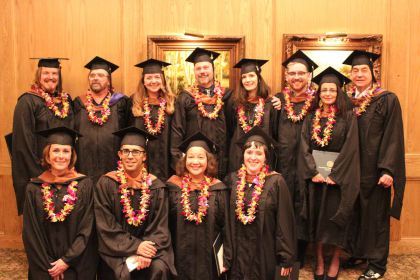 Sarah Foil is a writer, editor, and media manager based out of North Carolina. She has an MFA in Fiction from the Mountainview MFA program and focuses on YA Fantasy. While her current passion project is her YA Fantasy trilogy, which is currently seeking representation, she spends much of her time running and managing Sarahfoil.com, a resource for writers and readers of all kinds. She loves encouraging writers to continue to improve through her editing services and sharing her personal writing journey through blog posts and on Facebook and Twitter. If you have any questions about her services or MFA programs, please reach out via sarahfoil.com/contact .
Sarah Foil is a writer, editor, and media manager based out of North Carolina. She has an MFA in Fiction from the Mountainview MFA program and focuses on YA Fantasy. While her current passion project is her YA Fantasy trilogy, which is currently seeking representation, she spends much of her time running and managing Sarahfoil.com, a resource for writers and readers of all kinds. She loves encouraging writers to continue to improve through her editing services and sharing her personal writing journey through blog posts and on Facebook and Twitter. If you have any questions about her services or MFA programs, please reach out via sarahfoil.com/contact .
January 16, 2018
Keep It Simple
Keeping it simple, imagine that. I find it funny that when we teach writing in schools, we do everything but this. We give kids lists of alternative, flowery words and phrases to use, we provide them with other words for ‘said’, and teach them the proper use of adverbs. Yet in the real writing world, the world of editors and agents and publication companies, all of this is frowned upon.
This article sums up “keep it simple” quite nicely. Enjoy!
 Writing your first novel-Things you should know
Writing your first novel-Things you should know
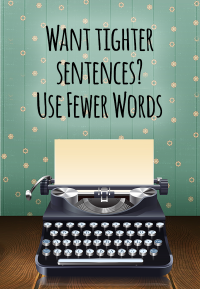 Whenever you write, you should aim for maximum simplicity. You want tight writing with no redundancies, flowery language, or longer than necessary words. Shun pretentious writing. It exposes your inexperience.
Whenever you write, you should aim for maximum simplicity. You want tight writing with no redundancies, flowery language, or longer than necessary words. Shun pretentious writing. It exposes your inexperience.
I borrowed the following example from a class I am taking through Udemy. It does a great job of showing what I am trying to explain. If you haven’t checked Udemy out, I would highly recommend their classes. They are informative, interesting, and very easy to follow, and are a fraction of the cost of most sites I’ve visited. Now back to my blog and the example 
January 15, 2018
A Balancing Act- Day Jobs And Writing
“How do you do it all?” “Where do you find the time?”I can’t even begin to tell you how many times friends, family members, and colleagues have asked me these questions. And there really isn’t a definitive answer other than blood, sweat, and tears. Well, maybe not the blood part, except for that time I had a paper…
via A Balancing Act: Day Jobs and Writing – Guest Post By LM Nelson — Blog – Sarah Foil
Characters Are People Too
[image error]The characters I create for my stories get into my head and speak to me. They come alive and become real people. I speak about my characters as if they are real people. This is something my husband doesn’t understand. He always tells me, “You do realize those people aren’t real, don’t you?” But to me, they are real. I’ve made them real, and they have become living, breathing beings.
When I write, my characters tend to take over. I have a plan for them and a direction I’d like them to go, but they often follow their own path. And sometimes, it’s not the path I planned. I go with the flow though and let them take the lead. This strategy doesn’t work unless you know your characters well and can dig deep inside their heads.
[image error]I’m a firm believer that characters can either make or break a story. A story may have a great plot, incredible writing, and interesting twists and turns, but if the characters are flat or underdeveloped, the story won’t draw me in. Characters have to be real, human – people I want to befriend and root for (or punch in the face). I need to feel like I know them on a personal level. If they don’t feel real, I could care less what happens to them, good or bad.
There are certain things to consider when creating characters. Here are some questions to ask which will help you gain a deeper understanding of your characters. The more you know about them, the easier it is to get inside their heads and let them take the reins.
Background
Where does your character live? What kind of family life does he have? What was his childhood like? Who are his parents? Does he have any siblings? What does he do for a living? What kind of skills and talents does he have? What is his educational background?
All of this information shapes the kind of person he is, which brings us to our next section.
Characteristics
What are his strengths? What are his weaknesses? What unique personality quirks does he have? Is he social or more reserved? How would he walk into a room? Would he make a big production out of a situation or keep it under wraps? Is he a generous person who gives freely or is he more focused on himself? Is he self-motivated or does he require a little push? Does he easily get upset or is he more laid back?
These questions can help decide his motivation and determine how he might respond in certain situations, which is important to consider when creating believable characters.
Habits and Expressions
This next section could go under characteristics, but I’m writing it separately simply because habits can affect a person’s demeanor. Some habits can even leave a good or bad impression. So consider the following when you develop your characters:
Does he walk a certain way? Does he lean on things? Does he chew gum or bite his fingernails? Is he a coffee drinker? A smoker? A drinker? How does he handle money? What does an ordinary day look like for him? Is he always on the go, or does he stop to smell the roses once in a while? Does he tap his pencil, roll his eyes, cross his legs, pace the floor? Does he display certain facial expressions or pose with certain postures? Is he fidgety? How does he handle uncomfortable situations?
[image error]
Outlook and Attitude
How would this character describe himself? What does he believe in? What haunts him? What are his biggest fears? What are his plans for the future? Does he have a positive attitude or a negative attitude? What motivates him? What are his pet peeves? What makes him angry? What makes him sad? How does he react when he’s angry? What does he do when he’s upset? What is something he would risk his life for?
Interests and Favorite Things
What does this character like to do? What are his favorite books and movies? What kind of music does he listen to? What is his favorite meal? Does he have certain political or religious beliefs? What kind of car does he drive? What does his house or apartment look like? What would his dream vacation be? What is the best gift he could receive?
Physical Appearance
What is his height, weight, posture? What kind of physique does he have? What color are his eyes, hair, skin? Does he cut his hair a certain way? Does he wear glasses or have facial hair? Any significant scars or tattoos? What kind of clothes does he wear?
[image error]
Each character in your story needs to have his or own own unique qualities. Even if your readers never know any of this information, you do, and knowing this will bring your characters to life and make them more real.
Happy writing!
Inspiring Quotes Part 13
“Faith is taking the first step even when you don’t see the whole staircase.” – Martin Luther King Jr.
January 14, 2018
Author Toolbox Blog Hop – Building Your Community
Great tips on building your author community.
This post was written specifically for the #AuthorToolboxBlogHop.
One thing that I found is liable to help you on your writing quest is to grow and cultivate a community of like-minded individuals around you. Even if it’s only online (ideally I think you want both online & in-person), it can have many benefits for writers of all levels.
Below are a few of my suggestions on how to meet and get in touch with other writers and I’ve split them into the online & the reality based options.
Online:
Use Twitter.
There are a number of daily writing hashtags or games. There are also several chats to help you connect with people. If you’re not sure where to find some of these, I’d suggest following @writevent, who posts daily reminders/links to many of them.
Join a Facebook group.
There approximately 7,356,000 Facebook groups dedicated to books and…
View original post 308 more words


